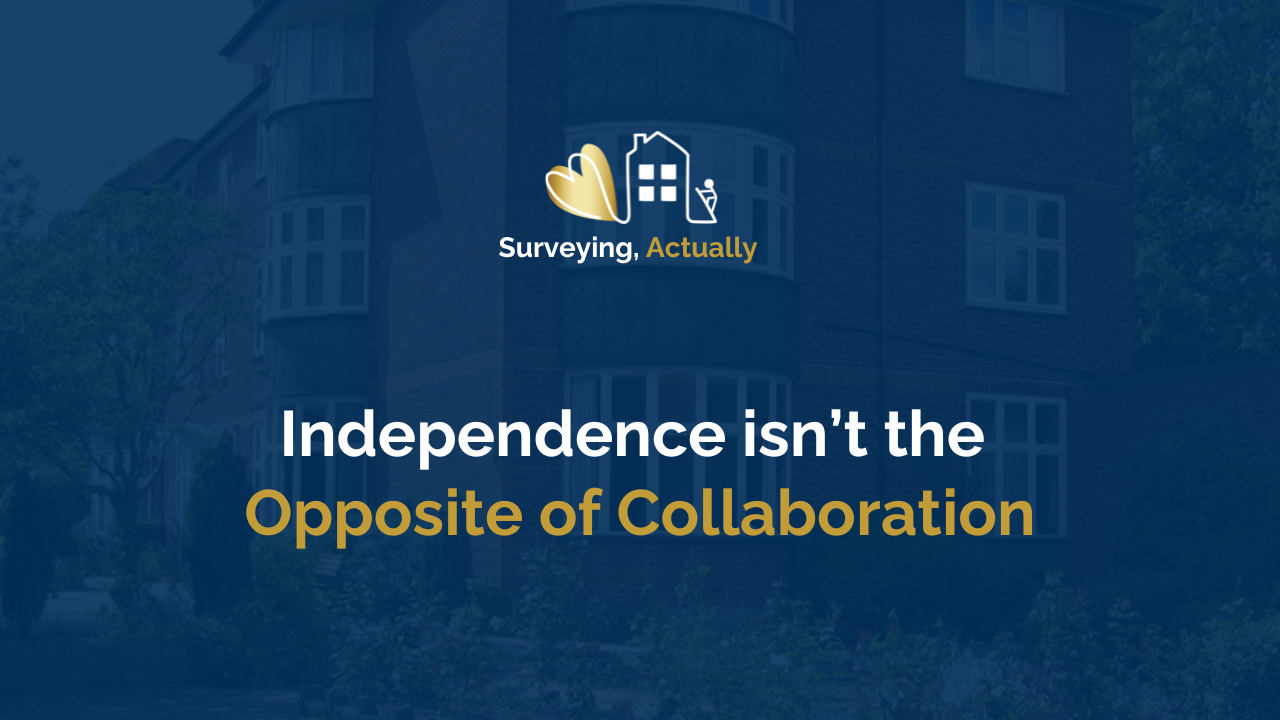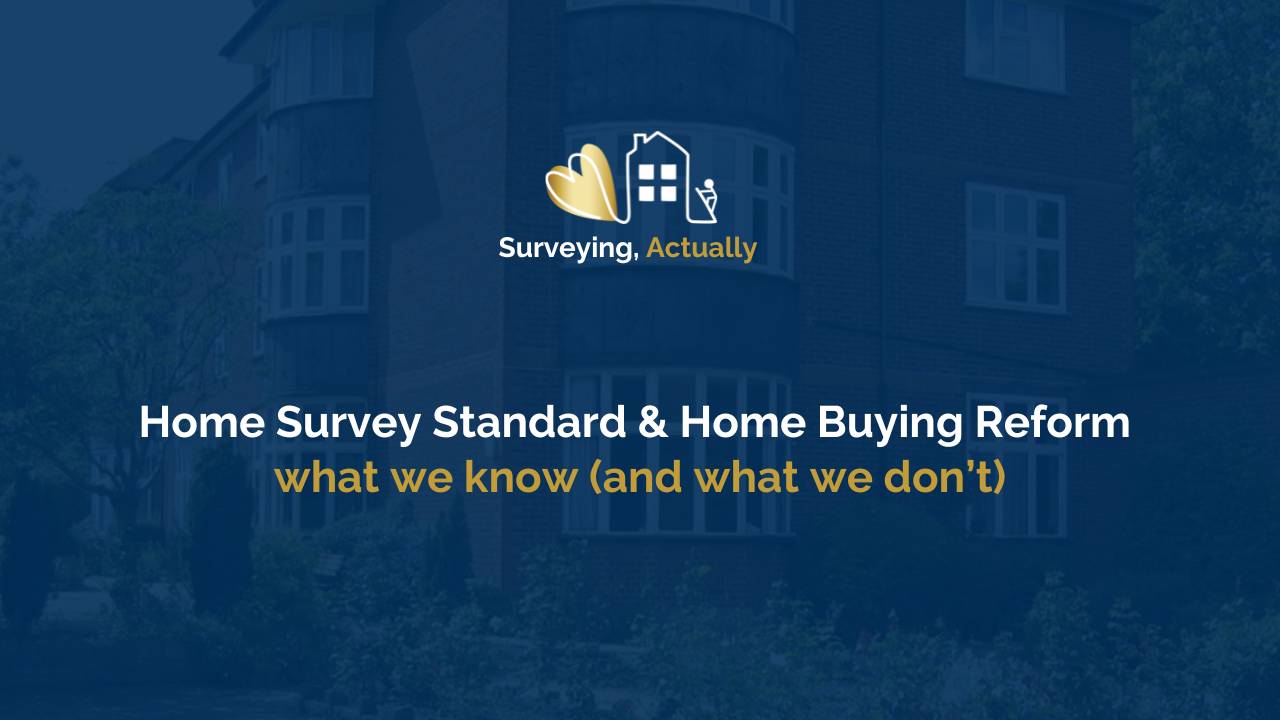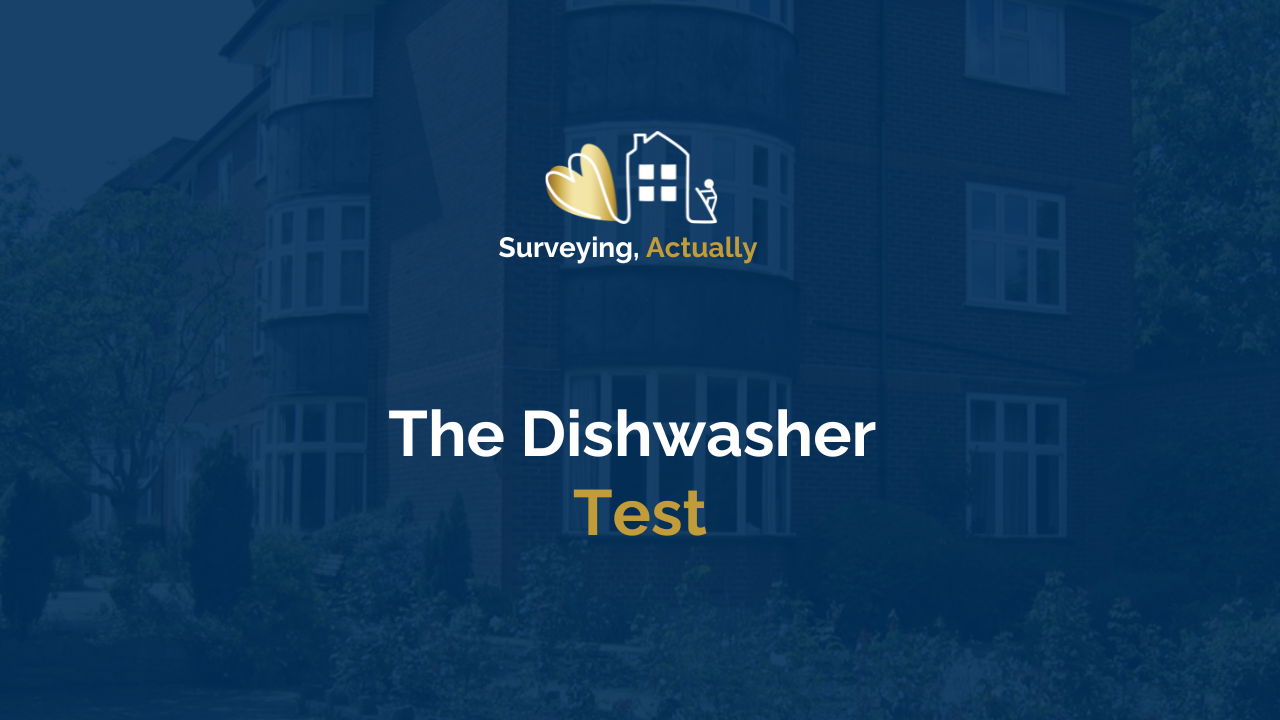Career Crossroads: Start a Business or Find a Job as a Newly Qualified Surveyor
Nov 17, 2023
As you come to the end of your assessment period or training as a surveyor, you may be thinking about what to do next and if it is the right thing to start a surveying business. I am often asked it, and the answer is always the same - it depends.
No one can make those decisions for you, but here are some key considerations and suggestions to help you on your way:
Do you have enough information yet?
At a guess, I would say no, you probably don’t. You have to really immerse yourself into the sector to understand how it works, what the pitfalls are, but also what the advantages and benefits are. If you had enough information, the answer would be crystal clear, or you need to narrow your options down.
How do you find out more? By speaking to more surveyors who run their own businesses.
What is the fear behind the decision?
If you have all the information but still can’t decide, you need to listen to your gut instinct. It is either sending you a warning signal of something to be worried about, or it is overwhelmed - in which case, you need some time out, clear your head and revisit the first point above to make decision-making simpler.
Trusting your gut is something you must learn to do as a surveyor, so it is good to start now. Humans are highly advanced sensory beings, and being honest with yourself is important. What is the real worry or risk you are afraid of? For many, it is ensuring a steady income but not wanting to lose the flexibility of work and family life, which many of us have become accustomed to in recent years. For some, it is the risk of a claim and feeling we are not experienced enough yet. For others, it is necessary to be independent, especially if you have past business experience.
If you acknowledge the fear, you will have a better chance of finding a solution to it.
What is your motivator?
There is no doubt about it: running a surveying practice is risky, but it doesn’t have to be; it all depends on your motivation to work for yourself. Fear can be a good motivator, but it can lead to short-term decisions being made, which are not always the best, leaving you with a yo-yo effect of highs and lows but overall dissatisfaction. For example:
- Fear of not earning enough money or finding clients can lead you to reduce your fees so you win the work or sign up for panel work you don’t really want. And then burnout.
- Fear of not being experienced enough can lead you to work all hours, hesitate in your reports, add every caveat possible and produce a worthless report. Too many caveats actually put you at a higher risk of a complaint.
- Fear of not spending enough time with the family can mean your boundaries slip; either work or family life suffers, but ultimately, both will. And so will your health.
A better approach is to set out to create a life and business on your terms - a life-friendly business doing work you love, for clients you like, who pay you what you are worth.
That means taking the time to understand what that could look like, how to make sure you manage risk and taking time to understand the services you can offer, which add value worth paying for and identifying the clients you want to serve.
Are you qualified and experienced enough?
The problem with entrepreneurs on social media telling us how they created 6/7 figure businesses while they juggled babies or had two jobs and a burning passion to succeed is that they are the exception and, more often than not, not strictly true. The problem with 'successful' surveyors is twofold. They often believe no claims mean they are a good surveyor when often it is down to luck. And secondly, what a successful surveying business looks like varies depending on who you speak to.
To do a job well, you need to be trained and qualified properly, to do the job and you need to be able to do the job in context to meet your client's needs. It’s the difference between providing a survey and providing a service, which helps clients make an informed decision because you know their pressure and the decisions they need to make.
And all of that comes with experience. You will know if you are experienced enough to do it alone and if it is a responsible thing to do. If you don’t, you need to find a way to measure your skill and knowledge. When you do, you will feel a better surveyor for it and have a clear plan of the steps you need to take to get the training and support you need; ultimately, you will enjoy your business a whole lot more, too.
Decide on your business vehicle.
When we look to role models and mentors, we often focus on what they did or do rather than their attitude or approach. A successful surveying business now may not be a successful one in the future because the nature of our work changes over time, as does technology, the law and regulations. And you are not the same surveyor as the person running a business you admire. You cannot predict the future, but you can ensure you are agile and resilient enough to follow the sun and bend with the wind so long as you know and trust the vehicle you are travelling in.
You may be presented with an opportunity to buy an existing surveying practice, and on paper, this may seem a good offer and a ready-made solution. However, most surveyors want to sell their practices to ensure their Professional Indemnity (PI) run-off costs are covered. That may mean you are tied to take on someone else’s PI liability, which is a risk no matter how good a surveyor they are.
Better is to find a way to help them ease out, and you ease in. This may involve purchasing a set up of offices and admin, but it doesn’t have to be if it doesn’t suit how you want to work. There is always a solution to be negotiated, but there are considerations; you need to be clear about what you want and why you want it and do your due diligence.
Make sure you have the right support.
Where you have the most support in life and business is where you will succeed most. And that support can come in many different shapes and sizes.
Take a look at the Independent Surveyors and Valuers Association (ISVA), the Residential Property Surveyors Association (RPSA), the Royal Institution of Chartered Surveyors (RICS) SME Hub, The Surveyor Hub Community and Podcast and, of course, the Love Surveying Mastermind.
I hope you found this article helpful; feel free to share it with your network, and if it feels right to do so, you can 'Buy me a Coffee' as thanks using the link below.
PS - You might also like to read Why Regulations Matter in your Surveying Business.





